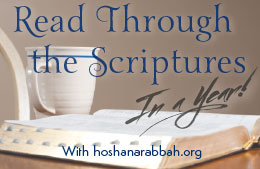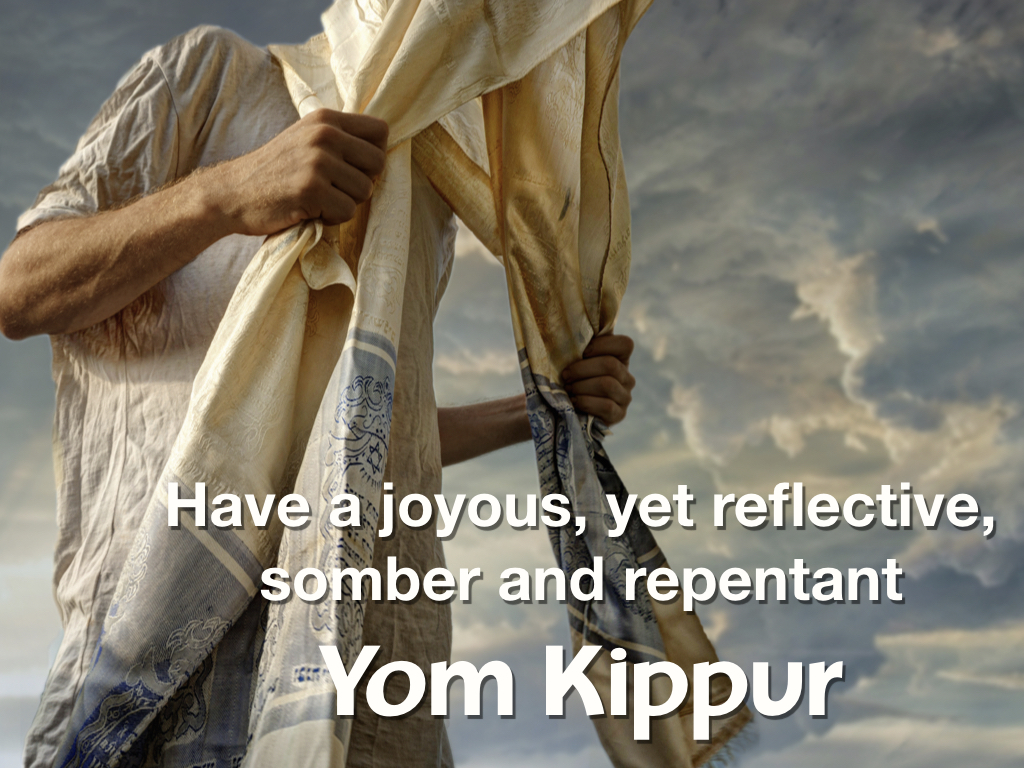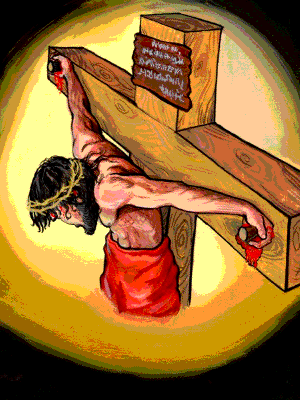
https://hoshanarabbah.org/pdfs/read-bible-in-a-year-2025-2026.pdf
Thank you Sandi Lawrence for your hard work every year in putting this schedule together!



https://hoshanarabbah.org/pdfs/read-bible-in-a-year-2025-2026.pdf
Thank you Sandi Lawrence for your hard work every year in putting this schedule together!


It is here! A day of joy or sorrow depending on whose spiritual team you are on—YHVH’s our the devil’s.
On Friday, October 3, 2025 we will be celebrating Yom Kippur according to the visible crescent new moon, abib barley, ancient Torah-based calendar. Leviticus 23:26commands YHVH’S people to celebrate Yom Kippur or the Day of Atonement on the tenth day of the seventh month on the biblical year. Exactly 10 days ago, the new moon was spotted in Israel making October 14, then, the tenth day of the seventh month. In five days we will begin celebrating the Feast of Tabernacles (Chag haSukkot). HalleluYah! To learn more about the Day of Atonement so that you can celebrate it with meaning and joy, please read on.
But before we proceed to our list of links to a whole boatload of free instructional materials on Yom Kippur, so that you can celebrate it with purpose and meaning, we must first address some destructive heresies regarding some erroneous so-called biblical calendars out there. The sword of the Spirit is sharp and two-edged, for it divides soul and spirit, between lies and truth, between fact and fiction, between the Word of Elohim and the traditions of men. Some people may find the truth to be offensive, but who are we aiming to please here? YHVH or men? Let us be those who prefer the praise of YHVH Elohim over those of men! Selah.
In the Messianic, Hebraic roots or pro-Torah Christian community there is much debate, strife and confusion over biblical calendars, sadly. We refuse to be part of this. We give the biblical reasons for why we adhere to the biblical visible new moon, abib barely calendar by giving you the most accurate information from the Bible that is possible, then we allow you to decide for yourself what you will do. We are not your judge in these matters. We speak the truth and let the chips fall where they may. Each us is eventually and ultimately answerable to YHVH for our actions be they good or bad with regard to serving and obeying him.
That said, I can say with full assurance and authority that all the various designer, flavor of the month calendars out there except one are based on ignoring Scriptures that disagree with their premise, twisting Scriptures including Hebrew word meaning, or relying on the traditions of men and extra-biblical sources without which none of these non-biblical calendars will stand against the Truth of the Bible. Let me give you some examples of what I mean.
In my articles and videos on the new moon, abib barley calendar, I prove the validity of this calendar solely from the Bible. Yes, I quote a few extra-biblical sources as confirmation, but these are not needed to prove the point as you will see if you read or watch the materials that I present. This is not the case with the any of the other calendars out there. For example,
For those who want to learn more about both the biblical calendar, the biblical feasts and Yom Kippur, we invite you to check out these free resources:
The more we study the Bible, the more amazing it becomes! You have the written words on the physical page, but beyond that there are numerous levels of multidimensional understanding beneath those words that one discovers as one digs deeper. One example of this are Yeshua’s words and actions between Matthew chapters 16 to 25 which the Gospel writer at the prophetic allegorical level, whether he knew it at the time or not, lays out in a perfect chronological timeline of end time events that lead up to and proceed the long anticipated second coming of Yeshua the Messiah. In this video Nathan reveals and discusses these events. These are things that have been wonderfully hidden in plain sight all along to be discovered by those who know the times and season in which they are living and have eyes to see and ears to hear. Come along with us on this adventure and may your faith be strengthened!
This and other videos by Nathan are available as podcasts on Spotify and Apple podcast under “Hoshana Rabbah.”
If this message has been a blessing to you, please consider showing your appreciation by making a donation to Hoshana Rabbah at http://hoshanarabbah.org/blog/. Thank you!

Having a working knowledge of the Bible’s prophetic “blueprints” will not only help us to understand future events relating to the end times, but will also help us to discover who we are as a people in the eyes of YHVH, where we have come from, where we are presently, and where we are going—that is, what the future holds for us, and what our spiritual destiny and divine inheritance will be. Only then can we begin to understand the end-time prophetic events leading up to the second coming of Yeshua and what our divinely mandated mission as obedient disciples of Yeshua is to be during these times.
As we begin to examine Matthew chapters 24 and 25 (the Olivette Discourse), it is important first to note the chronological positioning of Yeshua’s prophecy in the context of the passages before and after Matthew chapteer 24. The chapters that precede Matthew 24 prophetically speak of precursory events leading up to the second coming of Yeshua, while the chapter that follows Matthew 24 prophetically delineate events that occur after his return.
With this larger context in view, it becomes evident that Matthew 24 sits like a diamond in the midst of a brilliant gold setting. The larger picture speaks of the order of end time events pertaining to the second coming of Yeshua the Messiah, our beloved King, Redeemer and Savior. What follows below is a chronology of events as Matthew lays them out, more or less, in the order in which they will occur prophetically in the end times.
After this quick overview these chapters in Matthew’s Gospel, hopefully it is becoming apparent that beneath the Gospel narrative contained in chapters 16 through 25 listing a series of events and teachings in Yeshua’s life, there is a more or less chronologically-ordered subtext prophesying end time events. These will surround his second coming and beyond. In these chapters and just before his crucifixion, Yeshua leaves a blueprint or overview with his disciples of events pertaining to the kingdom of heaven, which he had just initiated and instituted among them and begun promoting, and about his regathering the lost sheep of Israel and reuniting the divided kingdoms of Israel (the house of Judah who are the Jews, and the house of Israel or Ephraim who are, loosely speaking, the Christians). These activities will be occurring up until his second advent. Then from Matthew 24 through 25, we see Yeshua prophesying about events that will occur just prior to and after his return including end-times tribulations, the great tribulation, his second coming, and his giving out rewards and judgments to his servants.
Having a basic understanding of the events leading up to Yeshua’s second coming, as sketchy as our understanding may be, will hopefully spur Yeshua’s disciples onward and upward in the hope of their faith (Heb 11:1) and as an anchor to their soul (Heb 6:19) in troublous perilous ahead.

Deuteronomy 32
An Overview of Deuteronomy 32
The Poetic Song of Moses: A Prophetic History of the Rise, Fall and Redemption of YHVH’s People

Deuteronomy 32:1–2, Words of my mouth…rain. Note the phrases: “words of my mouth,” “my doctrine,” “rain,” “my speech shall distill as the dew,” “small rain” and “showers.” Now compare these phrases with Ephesians 5:26. What is Scripture talking about here? Israel spent 40 years in a dry wilderness. By contrast, the Promised Land was a land flowing with milk and honey, was agriculturally fruitful and well-watered. Immediately before and after the giving of the Torah at Mount Sinai (Exod 20), there are several references to human thirst and YHVH needing to provide water for his people (Exod 15:22–27; 17:1–7 Num 20:2–13). During the Messianic Age (or the Millennium), living waters will flow from Jerusalem (Zech 14:8), and those who refuse to come up to Jerusalem for the Feast of Tabernacles (Sukkot) will receive no rain on their land (Zech 14:16–19). As you relate all these scriptures together, what is the bigger lesson YHVH is trying to teach us here pertaining to water and the word of YHVH? Basically, as we cannot survive without physical water, neither can we survive without the water of his Word.
Deuteronomy 32:2, Teachings droop as rain. Like the dew, the Torah is a gift from heaven and waters the ground of men’s hearts to help bring forth a bountiful harvest of righteousness. (See also Eph 5:26; Isa 55:1–11 cp. Mic 5:7.)
Deuteronomy 32:6, Do you thus repay or you are unmindful. The Hebrew letter hey at the beginning of this verse in the phrase “do you thus repay” is written larger and is separated from the surrounding words by a space making it the only one-letter word in the entire Tanakh. The Jewish sages tell us that this is part of Moses’ concealed signature in the Torah text—a Hebrew poetic device by which authors weave their signatures in the texts they have written in the form of an acrostic (Tikkun, p. 488).
Deuteronomy 32:8, Children of Israel. The Septuagint (LXX) has “angels of God”, the ESV has “sons of God”, and the Dead Sea Scrolls Bible (DSS) has “children of God”. The LXX and ESV references could be a reference to the fallen angel, demon-nephilim or the sons of Elohim reference found in Genesis 6:2 who along with their descendants founded kingdoms and empires that were opposed to Elohim. This alternate rendering possibly makes more sense, since Israel was not yet a nation when the Almighty assigned the nations to the heathens and the demon-gods or elohim that he placed over them and that they worshipped in place of the true YHVH Elohim. Or alternatively, perhaps YHVH arranged the heathen in their countries around the future land of Israel, and those heathen living therein were merely squatters illegally inhabiting the Promised Land before the children of Israel were a nation.

Deuteronomy 32:14, Blood of the grapes. What is the Torah referring to in this interesting, rather arcane phrase? Compare this with a parallel passage found in Genesis 49:11, which is clearly Messianic in nature. Now add into the mix Leviticus 17:11; Revelation 1:5; 7:14; Matthew 26:27–28; Romans 3:25; Ephesians 1:7; Colossians 1:14; John 15:1–5 and finally John 6:53–56. In the last scripture listed, is Yeshua advocating some bizarre cultic rite involving cannibalism, or is he relating back to these Torah passages that are messianic in nature and then relating them to his redemptive work at the cross, which believers commemorate when they take communion at Passover? I think so.
Deuteronomy 32:15, Yeshurun. The name Yeshurun is a poetic appellation for Israel and means “upright, straight or just.” YHVH ascribed this august title to Israel indicating that Israel was not to deviate from the high spiritual standards demanded by YHVH (The ArtScroll Stone Edition Chumash, p. 1103). This is a prophecy about what would happen to Israel once they were in the Promised Land. Sadly, eventually they would forsake the one who had redeemed and blessed them. Compare this with Yeshua’s admonition to the Laodicean believers in Revelation 3:14–21 (especially note verse 17), which is a description of the contemporary American and Western Christian church, much of which preaches an “easy-believism,” health and wealth, pop-psychology, “come to Jesus and everything will be all right” humanistic gospel message. Just because you may now be inclined to a more Torah-oriented lifestyle or part of a congregation that uplifts YHVH’s Torah to one degree or another does not mean that you have shed off this kind of thinking and its accompanying lifestyle. These warnings still apply to all of us. Selah (ponder and reflect).
Deuteronomy 32:18, You are unmindful. Abraham’s steadfastness in surviving ten tests of his faith eventually saved his descendants, who tested Elohim on ten different occasions in the wilderness. This is alluded to by the specially small yud (which in the Hebrew alphabet signifies the number 10) in the phrase teshyr tzor y’ladkha, the Rock Who gave birth to you, have forsaken (The Wisdom in the Hebrew Alphabet, by Michael Munk p. 129).
Deuteronomy 32:21, I will move them to jealousy with those which are not a people. I will provoke them to anger with a foolish nation. The term not a people is the Hebrew phrase lo-am.Curiously this same phrase occurs in two other places in the Tanakh (Isa 7:8;Hos 1:9) in reference to the Northern Kingdom or house of Israel (or Ephraim) and is repeated by Peter in reference to the “Gentiles” or “peoples of the nations” (which is the meaning of the Greek word ethnos translated as gentiles; 1 Pet 1:1; 2:9–10). Moreover, in Romans 9:25 Paul equates the “Gentiles” with the same people-group to which Hosea makes reference in Hosea 2:23. To whom is Hosea referring in his prophecy? (Read Hos 1:4,6; 4:15–17, chapter 5; 6:10–11; 7:1–11; chapter 8; etc.). Remember that the nation of Israel split into two groups at the time of Jeroboam and Rehoboam: the Northern Kingdom comprised of the ten northern tribes of Israel and was colloquially known in Scripture as Ephraim, house of Israel and Samaria, while the Southern Kingdom was known as Judah, the house of Judah and Jerusalem.
Where are these Ephraimites of the house of Israel today? The answer can be found in Genesis 48:14 and 16 where the patriarch Jacob is prophesying over the two sons of Joseph: Ephraim and Manasseh. There we find some clues that point us to a religious people-group in existence today. When praying over his grandsons whose descendents would make up the largest number of people of the house of Israel or Northern Kingdom, Jacob with his arms he makes an interesting sign. He crosses his arms forming a cross? Then in verse 16, Jacob recounts his experiences with the Angel or literally Heavenly Messenger who “redeemed me from evil.” This is a reference to Genesis 31:1–11 where, while fleeing from Laban, Jacob’s adversary, he had a dream where the Messenger of Elohim calls himself the El of Bethel (or the El/God of the House of El/God). Who else is the Messenger of Elohim who is also a Redeemer but Yeshua the Messiah? (See Rom 3:24; Eph 1:7; Col 1:14; Heb 9:12.)
Finally, Jacob prophesies that his grandsons’ descendants would grow into a multitude in the midst of the earth. The word grow is the Hebrew word dagah/VDSfrom which the Hebrew word dag/DSor fish derives. This is why the ArtScroll Stone Edition Tanach translates this phrase as “may they proliferate abundantly like fish within the land.”
The question is then begged, what religious people-group on earth today can be associated with a cross, a Redeemer and a fish? Knowing this will give us a clue as to whom Paul and the other writers in the Testimony of Yeshua (NT) were referring when they equated the “Gentiles” with “a foolish nation” and “not a/my people.” Only the Christians fit the prophetic descriptions listed here.

Deuteronomy 32:22, The lowest sheol. The Scriptures in numerous places mentions sheol (a Hebrew word meaning “the grave”), but in several instances the Bible refers to the lowest sheol (e.g., Ps 86:13; Isa 14:15, NKJV). What is the difference between the grave and the lowest grave? It appears that sheol or the grave is where the bodies of mortal men go to await their resurrection either to immortality or to eternal death in the lake of fire (Rev 20:15). The lowest sheol appears to be the place where the devil and evil spirits (that rebelled at Lucifer’s fall and or prior to Noah’s flood) are confined awaiting the white throne judgment and their ultimate fate in the lake of fire. If this interpretation is correct, this may explain the enigmatic “spirits in prison” passage of 1 Peter 3:19. This would also be the pit or abyss into which Satan is cast and confined for 1000 years at Yeshua’s second coming (Rev 20:3). This may be what Isaiah 14:14–15 is referring to when it describes the fall of Lucifer and prophesies his being brought down into the lowest sheol, the pit or abyss.
This lowest sheol or lowest level of the grave is likely the same place that YHVH cast the angels that rebelled in the time of Noah where they are confined in chains of darkness awaiting their judgment at the end of the Millennium. This is probably the same “prison” or pit (Gr. tartaroo, pronounced tar-tar-ah-ohw, see notes at 2 Pet 2:4)that Satan will be cast into at the beginning of the Millennium and then briefly released from at the end of it to go forth and to deceive the nations (Rev 20:7–8). After that, Satan (presumably along with his demons) will be cast into the lake of fire where they will be tormented for eternity (Rev 20:10).The lake of fire is a different place than the pit, sheol or tartaroo, which is a temporary place of restraint or prison where YHVH places rebellious angelic beings to await their final judgment, which is the lake of fire.
Deuteronomy 32:26, I will scatter them into the corners. How was this prophecy fulfilled by Israel? Who in Israel was scattered and forgotten? Certainly not the Jews. They were scattered, but not forgotten. Verses 28–29 say of these people that they are void of counsel and understanding and lacked wisdom. These are all terms relating to the Torah. Who today has forgotten the Torah and says it is “done away with”? What religious group says that it brings death not life (in contradistinction to verse 47)? Who has inherited (theological) lies from their spiritual fathers (Jer 16:19, read verses 14–21 for context), and who say that “the law has been done away”? Malachi the prophet tells us that in the last days that YHVH will rise up people in the spirit of Elijah who will go forth and turn the scattered and backslid children’s heart back to their spiritual fathers. This involve returning to the Torah of Moses (Mal 4:4–6). It is interesting to note that The ArtScroll Stone Edition Chumash in its rabbinical Jewish commentary states that this verse “refers to the exile of the Ten Tribes who were scattered to an unknown place where they were never heard from again” (p. 1105).
It is important to note that the ten northern tribes of Israel or Ephraim, as Scripture often shortened their name to, were scattered over the face of the whole earth after they were taken into captivity by the Assyrians (Ezek 34:6,12; 36:19; 37:21; John 11:52). In regards to Deuteronomy 32:26 which says, “I said, I would scatter them into the corners…,” the Orthodox Jewish The ArtScroll Stone Edition Tanach Chumash comments, “This refers to the exile of the Ten Tribes who were scattered to an unknown place where they have never been heard from again.” On the phrase of the same verse, “I would make the remembrance of them to cease from among men…” the same Chumash states, “This is a reference to the exile of Judah and Benjamin, the Davidic kingdom from which today’s known Jews are descended.” It goes on to say that though nations would seek to destroy Israel entirely YHVH would never allow Israel to become extinct or disappear. Israel’s perpetual existence is a constant reminder of YHVH’s plan and eventually Israel will thrive and fulfill YHVH’s intention for it (pp. 1105–1106). Samson Raphael Hirsch in his commentary on the Pentateuch on the same verse translates the phrase, “I would scatter them into the corners…” as, “I would relegate them into a corner” and then says that the Hebrew here refers to the “extreme end of a surface, the side or corner…” He, too, relates this fate to the ten tribes who would be scattered “to some distant corner of the world, where, left entirely to themselves, they could mature towards serious reflection and ultimate return to Me…” (p. 650).
Deuteronomy 32:43, Let all the angels of Elohim. (LXX) The Dead Sea Scrolls Bible (DSS) and Septuagint (LXX) vary greatly from the Masoretic Text (MT) on how this verse reads:
Rejoice, O heavens, together with him; and bow down to him all you gods, for he will avenge the blood of his sons, and will render vengeance to his enemies, and will recompense those who hate him, and will atone fro the land of his people. (DSS)
Rejoice, ye heavens, with him, and let all the angels of God worship him; rejoice ye Gentiles with his people, and let all the sons of God strengthen themselves in him; for he will avenge the blood of his sons, and he will render vengeance, and recompense justice to his enemies, and will reward them that hate him, and the Lord shall purge the land of his people. (LXX)
Interestingly, the phrase in Hebrew 1:6, “Let all the angels of God worship him” (NKJV) is a direct quote from the LXX (or the more ancient Hebrew manuscript from which the LXX derives), and not the MT, which is a later version of the Tanakh.

Will be merciful or will provide atonement. The key Hebrew root word in this phrase is kaphar meaning “to cover, purge, make atonement.” Yom Kippur and the kapporeth, which is erroneously translated as “mercy seat” in many English Bibles derive from kaphar. These Hebrew words are expressive and descriptive ways of showing the mechanics of YHVH’s mercy on sinful man. He literally covers their sins ultimately in the blood of Yeshua as the payment for the death penalty each person incurs because of his or her sins. Thus, this verse is a forward-looking prophecy pointing to Yeshua’s death on the cross.
Deuteronomy 32:47, It is your life. YHVH’s Torah-words or commandments (i.e., YHVH’s instructions in righteousness) are life for those who follow them. Do you really believe this? If so, are you living out YHVH’s Torah instructions to your best capability, or are you just playing religious games by not taking his Word seriously? If you really were convicted that YHVH’s Torah “is your life,” what changes would you make in your life to conform your life actions to these words? What things would you stop doing or start doing? How much more would you seek Yeshua, the Living Torah in daily prayer and the study of his Word? How much more would you contribute to YHVH by supporting his work on earth through your time, talent and treasure? How committed to him are you now compared to where he would have you to be? The answer to these questions and your action-based response thereto will determine your eternal fate vis-à-vis your relationship with your Creator, and eventually your eternal fate. The Song of Moses is a warning for those who stray from YHVH’s path of truth and righteousness as outlined in his Torah as well as the rest of the Bible. This song also offers hope to those who return to YHVH and receive his forgiveness for their sins, and then continue to walk in his paths of light, truth and righteousness that lead to a forever relationship with him.
All the time, I hear people say, “I follow the traditional or rabbinic Jewish calendar when celebrating the biblical feasts because I want to be in unity with my Jewish brothers.” Is this a biblically-based argument? Does it line up with what the Bible says? What did Yeshua/Jesus say about following the traditions of men that go against the Word of Elohim? Are Christians beholden to rabbinic Jewish dictums? If so, is there a biblical basis for this? What does the Torah say about following a crowd in its error? If we can make an argument for following the Jewish calendar, isn’t this also valid argument for following them in their denial of Yeshua as the Messiah? These and more questions are answered in this short, hard-hitting exposé.
This and other videos by Nathan are available as podcasts on Spotify and Apple podcast under “Hoshana Rabbah.”
If this message has been a blessing to you, please consider showing your appreciation by making a donation to Hoshana Rabbah at http://hoshanarabbah.org/blog/. Thank you!
This is Nathan’s 2025 Day of Trumpets/Yom Teruah prophetic wake up call and message to Christian believers everywhere. In dramatic and unexpected ways, YHVH Elohim is trying to get people’s attention, and giving people one last chance to repent and come to him in preparation for the second coming of Yeshua the Messiah. Charlie Kirk’s evangelistic message and recent assassination and is one more example of this.
This and other videos by Nathan are available as podcasts on Spotify and Apple podcast under “Hoshana Rabbah.”
If this message has been a blessing to you, please consider showing your appreciation by making a donation to Hoshana Rabbah at http://hoshanarabbah.org/blog/. Thank you!